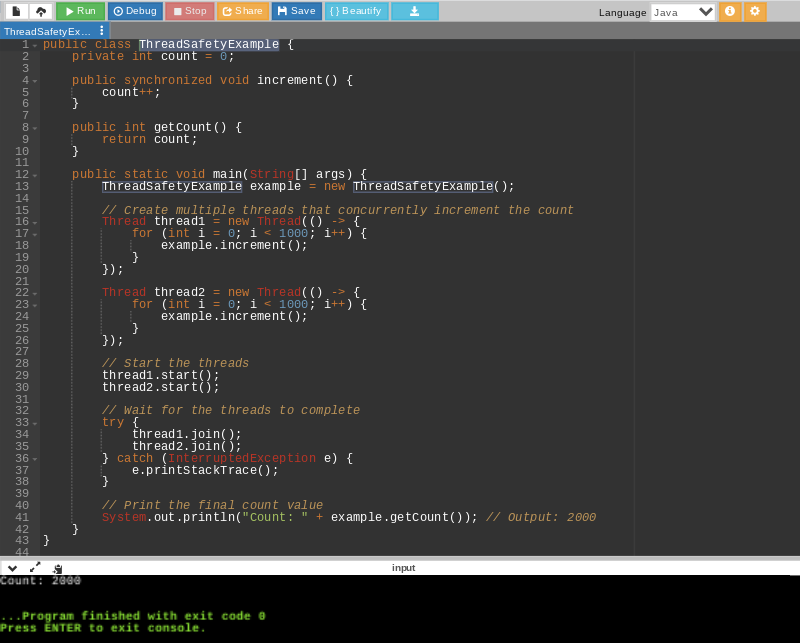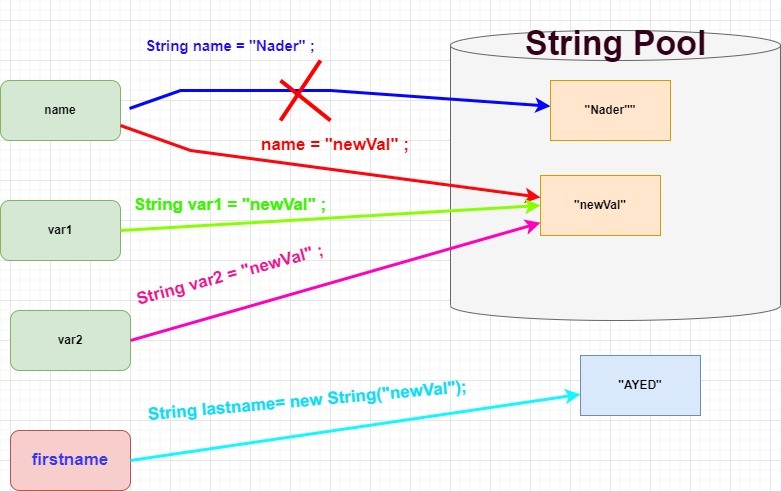Why Are Strings Immutable in Java? Vital Understanding for Developers
Why Are Strings Immutable in Java? Vital Understanding for Developers
Blog Article
What Is Unalterable Strings and Exactly How It Works
In the world of programs, recognizing the principle of unalterable strings is extremely important for developing protected and robust applications. Immutable strings refer to strings that can not be changed after they are developed, ensuring information honesty and predictability within the code.
The Fundamentals of Unalterable Strings
Unalterable strings, as an essential concept in programming, are personality sequences that can not be changed once they are created. This implies that as soon as a string is assigned a value, that value can not be modified. In languages like Python and Java, strings are unalterable things, leading to numerous ramifications in regards to memory monitoring and information honesty.
One of the vital advantages of unalterable strings is that they give a sense of security in data control. Since the material of an immutable string can not be customized, it makes sure that the original information stays intact, reducing the danger of unintended modifications during program implementation (Why are strings immutable in Java?). This home additionally streamlines debugging processes, as programmers can trust that when a string is defined, its value will not be unintentionally changed
When a brand-new string is created based on an existing one, instead than modifying the original string, the new value is saved individually. In general, comprehending the fundamentals of immutable strings is vital for mastering programming ideas and optimizing code effectiveness.
Benefits of Immutable Strings
Structure upon the protection and effectiveness advantages of unalterable strings, their benefits expand to boosting code dependability and simplifying concurrent programming jobs. By being unalterable, strings can not be modified after production, which gets rid of the threat of unplanned adjustments in the information they keep. This fundamental immutability guarantees that as soon as a string is developed, its value remains continuous throughout the program's execution, decreasing the possibilities of insects triggered by unexpected modifications.
Additionally, immutable strings contribute to code dependability by making it much easier to reason regarding the state of a program. Considering that strings can not be transformed, developers can rely on that a string will certainly always hold the exact same worth, streamlining debugging and maintenance efforts. This predictability leads to more dependable and steady codebases.

Application in Programs Languages
Within different programming languages, the unification of immutable strings is a basic facet that affects just how information is handled and adjusted within code structures. The application of immutable strings varies throughout different programming languages, with each language supplying its very own systems to sustain this principle.

On the other hand, languages like C and C++ do not have integrated assistance for immutable strings. Programmers in these languages have to by hand execute immutability by applying rules within their code to stop straight adjustments to string items.
Ideal Practices for Functioning With Immutable Strings
When dealing with unalterable strings in shows languages like Java and Python, adhering to finest methods ensures efficient and safe information control. Among the vital best techniques is to make use of StringBuilder or StringBuffer as opposed to directly controling strings, specifically when handling extensive concatenation operations. These courses give mutable options for string control, assisting to avoid unneeded memory appropriations and improving efficiency.
Additionally, when working with sensitive data such as passwords or API keys, it is her explanation vital to stay clear of keeping them as ordinary text in immutable strings. Utilizing safe storage devices like char ranges or specialized collections for taking care of sensitive information aids mitigate protection threats linked with immutable strings.
Real-world Applications and Instances
Discovering functional applications of unalterable strings in numerous industries exposes their considerable effect on information integrity and system reliability. In the healthcare sector, unalterable strings play a crucial role in making certain the security and privacy of individual data. By preventing unapproved modifications to delicate details such as medical records and prescriptions, immutable strings help keep conformity with strict privacy regulations like HIPAA.
Banks likewise benefit from the unalterable nature of strings to enhance the protection of client data and deal documents. Immutable strings aid prevent scams and unauthorized changes to financial information, giving a robust defense against cyber hazards and ensuring the trust fund and confidence of clients.

Final Thought
In conclusion, unalterable strings are fixed and stable sequences of personalities that supply benefits such as string safety and security and improved efficiency in programs. They are executed in various programs languages to make sure data honesty and safety and security. Ideal practices for functioning with unalterable strings include preventing straight adjustments and using approaches that return new string things. Real-world applications useful reference of unalterable see here strings consist of information security, caching, and string control tasks.
Unalterable strings refer to strings that can not be altered after they are created, ensuring information integrity and predictability within the code. When a brand-new string is created based on an existing one, rather than modifying the original string, the new worth is saved individually.In languages like Java and Python, strings are immutable by default, meaning that once a string object is developed, its value can not be changed - Why are strings immutable in Java?. Finest techniques for working with immutable strings include avoiding direct adjustments and utilizing techniques that return new string items. Real-world applications of immutable strings include information encryption, caching, and string manipulation tasks
Report this page